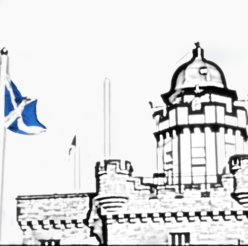Liz Stanley
A short article, “‘Led by the science‘: the changing role of experts from Brexit to COVID-19”, has recently appeared on the ‘Everyday Society’ part of the BSA website. It offers a series of comparisons between the role of experts during Brexit, “where experts were notable by their absence and the debates seem to be led by populist tendencies“, with the role they have in COVID-19. It also comments that “‘Led by the science‘ of course does not mean there is one homogenous objective scientific voice… Clearly, there is a need for balance, the role of rigorous scientific evidence is crucial”. In addition it proposes, not entirely correctly, that very few sociologists have commented on this; witness, for example, interesting contributions to such matters regarding COVID-19 in Discover Society among other examples.
What comes through is the idea that somewhere within what is happening there is ‘rigorous science’ which can provide certain evidence. If only! Perhaps this is the triumph of hope over knowledge of what has been happening! It also leaves on one side the question of what exactly the ‘science‘ is here although, as indicated above, it does recognise that it is not homogenous. The result is nonetheless a kind of collapse between medical investigations, mathematical modelling, epidemiological analysis and various other ‘science‘, some of which is based on assumptions that would be sociologically laughable if not so dangerous societally and ought to be subject to rigorous critical analysis. There’s also a missed opportunity in getting to closer grips with the idea of the so-called ‘expert’, something which has been given attention in a range of Edinburgh Decameron posts. ‘Balance’ in relation to such matters is in my view not what sociology should be aiming for. But the contents of this article and others that raise sociological heads above the parapets must be seen as a welcome sign of analytical things to come.
